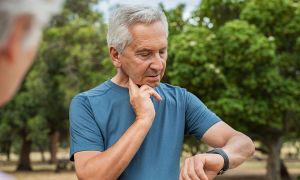Residual soreness of the chest immediately following a coronary stent procedure is common. If you are still experiencing chest pain after having a stent that is similar to the pain before your stent then there could be several reasons. One, the pain you are having wasn't caused by the blockage in your heart artery where the stent was placed. You could have some small blood vessels in the heart that have disease that could cause you pain, but not large enough to have a stent put in or the stent could be developing an obstruction. No matter what the reason, you need to see your heart doctor again to determine the reason.
Continue Learning about Heart and Circulatory System
Important: This content reflects information from various individuals and organizations and may offer alternative or opposing points of view. It should not be used for medical advice, diagnosis or treatment. As always, you should consult with your healthcare provider about your specific health needs.






